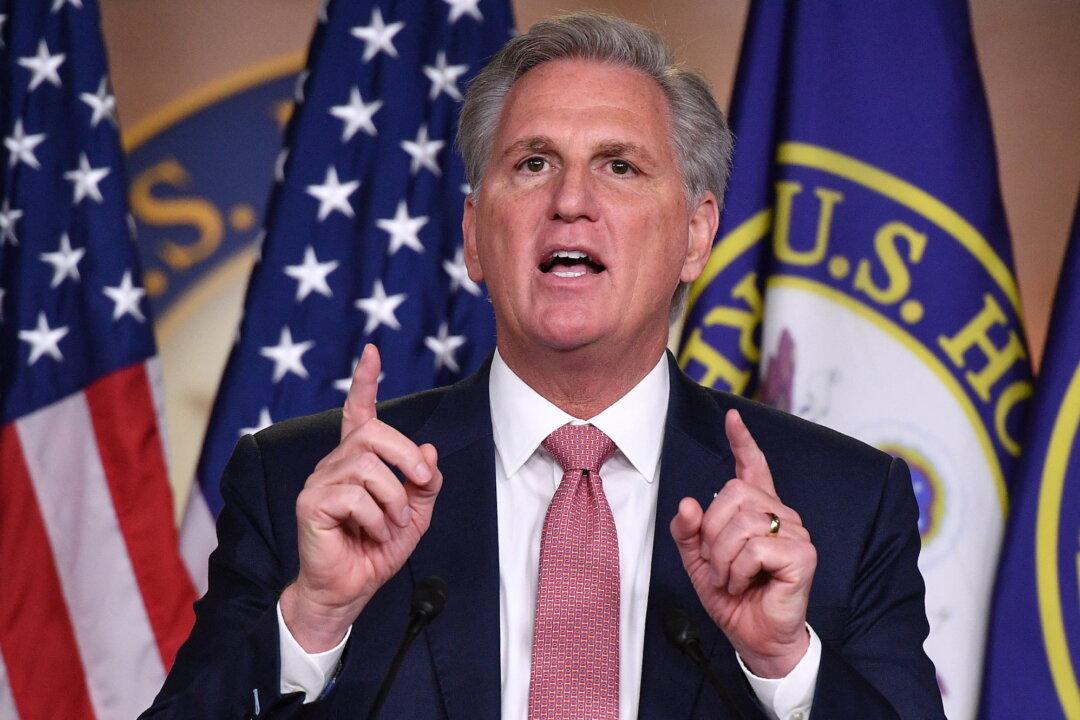House Minority Leader Kevin McCarthy (R-Calif.) and several of his GOP colleagues wrote an open letter to the nation’s governors, urging them to “put America back to work” by ending the $300 weekly pandemic unemployment boost that they blame for discouraging people from taking jobs and hurting businesses and the economy.
In the letter—co-signed by McCarthy and Reps. Steve Scalise (R-La.), Kevin Brady (R-Texas), and Jackie Walorski (R-Ind.)—the Republicans say they’ve heard from “countless Main Street employers who are struggling to hire the workers they need, due in large part to enhanced federal unemployment insurance benefits.”





